It’s as big as it needs to be
Novels. Novellas. Novellettes. Short Stories. Each is an arbitrary category for a particular length of fiction. There is no “right” length for a story really and the prevailing wisdom about the lengths that a novel must be are no longer set in stone.
A novel doesn’t have to be 120,000 words to be considered a novel. Some of the greatest novels have surprisingly short word counts. Madeleine L’Engle’s A Wrinkle in Time is a mere 49,965 words. Ray Bradbury’s Fahrenheit 451 is a mere 46,000 words long. Mary Shelley’s Frankenstein is only 75,380 words. Kurt Vonnegut’s Slaughterhouse-Five is 49,459 words long. Philip K. Dick Do Androids Dream of Electric Sheep is 61,237 words.
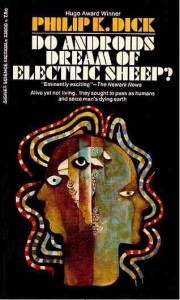 Back in the 1960’s the typical science fiction novel ran to about 60,000 words. These were slim volumes of about 130 to 150 pages. A book like Robert Heinlein’s Starship Troopers would have been considered quite a hefty volume at 84,769 words long.
Back in the 1960’s the typical science fiction novel ran to about 60,000 words. These were slim volumes of about 130 to 150 pages. A book like Robert Heinlein’s Starship Troopers would have been considered quite a hefty volume at 84,769 words long.
Mass market paperbacks in the US were sold mostly at grocery stores or neighbourhood pharmacies. They wewre displayed in wire racks that rotated. That’s where the thinner books were more desirable. The thinner the book, the more you could stack. You used to be able to fit about six paperbacks in a three inch rack.
So what happened? Why did these compact volumes grow to such monstrous size?
There are a few reasons, but chiefly it comes down to inflation. In the 70’s and 80’s the price of just about everything rose. That included paper and printing costs. Publishers found that they needed to increase the prices of their books to compensate.
 But according to grocery store logic if you want to charge more for a product then it has to weigh more. You can’t just start using bigger typeface or thicker paper to do that so you start looking for longer novels.
But according to grocery store logic if you want to charge more for a product then it has to weigh more. You can’t just start using bigger typeface or thicker paper to do that so you start looking for longer novels.
And there was also this massively big book that came out in paperback, a little story about elves and stuff, called Lord of the Rings. At 473,000 words it was a massive book that had to be broken down into three parts. But, oddly enough, that little book sold an amazing number of copies.
So, given that consumers would buy longer books and pay more for them if they were thicker, well, the writing was on the wall and there was a whole lot of it.
At the same time distribution channels dried up. The wire racks were gone. Publishers were charging more and more for thicker books, but the places that were left to sell these books couldn’t sell massive hardbacks unless they were bestsellers. Those pesky midlist volumes weren’t moving off the shelves fast enough. Stop sending us midlist books, the big bookstores told the publishers. Only send us bestsellers.
 But now that we have had the e-book revolution, everything has changed, right? No more massive tomes topping 150,000 words. No more need for all fantasy novels to be the length of George R. R. Martin’s A Song of Fire and Ice (1,7770,000 and counting). We can go back to shorter, faster paced volumes that we all remember from those halcyon days, right?
But now that we have had the e-book revolution, everything has changed, right? No more massive tomes topping 150,000 words. No more need for all fantasy novels to be the length of George R. R. Martin’s A Song of Fire and Ice (1,7770,000 and counting). We can go back to shorter, faster paced volumes that we all remember from those halcyon days, right?
Well, sure. Many e-books, especially self published ones, do tend to be shorter. 30,000 to 60,000 words is the length of most e-books, particularly indie ones.
The problem is that, according to an exhaustive study of e-books conducted by Smashwords, those smaller volumes are not the higher sellers. The best selling e-books are still longer works.
 The top 100 bestselling Smashwords books averaged 115,000 words. According to the study the lower the word count, the lower the sales.
The top 100 bestselling Smashwords books averaged 115,000 words. According to the study the lower the word count, the lower the sales.
It would be nice to think that size doesn’t matter, but in publishing – even in e-publishing – it does, particularly where science fiction and fantasy is concerned.
I was hoping we could return to that golden age of the shorter novel. Certainly there is a niche market for that sort of things. Some writers are making money at it. They’re not getting rich, but they are selling. But it seems that the onus is still on bigger volumes to carry the day.
And series, of course. Readers love a series. It seems that in publishing bigger is better and more is even better.
Super Size Me, insist the readers and publishers oblige.
Me? I’m going to dig out my old stacks of Ace paperbacks. I can hold about ten of them in one hand and I still love them.
How about you?
M. D. Jackson has been drawing since he could first hold a pencil. He has been writing for so long that he has, in fact, developed an alternate personality named Jack to handle the fiction.
His work has appeared in numerous magazines and on the front covers of many books as well as in the pages of Amazing Stories Magazine. You can also see a lot of it at his gallery.


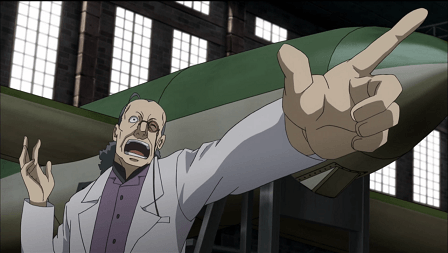

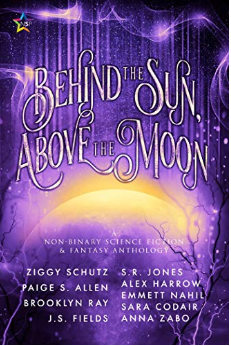

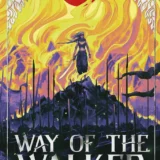


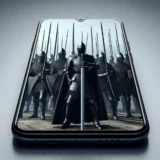
As someone who loves reading and writing shorter fiction, I also wish that the golden age of the shorter novel would come back. Lots of the older mysteries were shorter, too, as well as the ones you mentioned. I recently released a mystery novella and am getting a bit of flack over the word count in it (35,000 words).